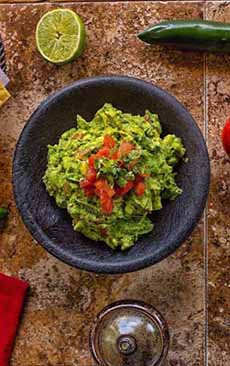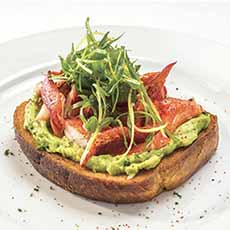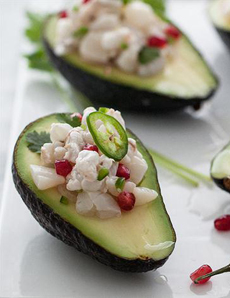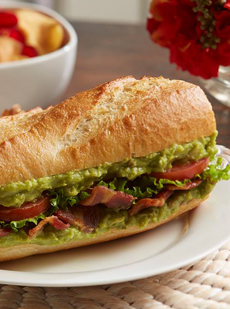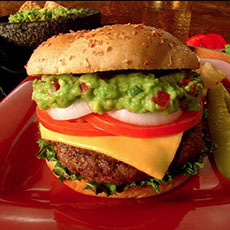Avocado Is A Fruit: Possibly America’s Favorite Fruit
|
|
America loves avocados. Sales have grown steadily over the last 15 years, according to the Hass Avocado Board. And the biggest consumption day is Super Bowl Sunday. More avocados are sold for Super Bowl Sunday than for any other time of the year, including Cinco de Mayo. The avocado is indigenous to Mexico. While there are much larger varieties of avocado, the Hass variety has the creamiest, most delicious flesh. As a result, some 98% of the avocados grown in Mexico are Hass. The variety was developed by a Southern California mail carrier and and amateur horticulturist, Rudolph Hass. He patented it in 1935. The Hass Avocado Board aims to make avocados America’s most popular fruit, and they’re well on course. In 2019, the volume of fresh Hass avocados sold in the U.S. was an astounding 2.576 billion pounds, or 7.8 pounds per capita. The Board estimates that annual per capita consumption will be 9.1 pounds per capita in 2021. The California Avocado Commission notes that 13.2 million pounds of avocado—approximately 26 million individual avocados—are sold in preparation for Super Bowl Sunday [source]. That “preparation” is largely guacamole. But year-round, there are other popular uses for avocados, including salads, avocado toast, sushi rolls, tacos, burgers (photo #7), sandwiches (photo #6) and these 23 ways to eat avocado. Avocado is marketed as a healthy “super food.” In addition to creamy goodness, avocados are heart-healthy, nutrient-dense and a good source of fiber (here’s more about avocado nutrition). Mesoamericans “discovered” the avocado, which had grown there for perhaps 50 million years. They called it ahuacatl, ah-hwa-CA-tay, which the Spanish conquistadors transcribed to aguacate. Archaeologists have found evidence of avocado consumption that dates back almost 10,000. Initially, people simply gathered wild avocados. Mesoamerican tribes such as the Olmec and the Maya began to cultivate the avocado tree about 5,000 years ago. Here’s more on the history of the avocado. In the U.S., the answer has traditionally been Mexico first, followed by California‡. A small amount is produced in Florida. Because of global demand, Peru and Colombia are ramping up to be the major suppliers of Hass avocados to Europe, according to AgroFresh, a company that provides integrated solutions to industry and retailers, for more freshness and quality in produce. In the near future, avocados from Chile, Peru, Colombia, even Africa may arrive in the U.S. market. Avocado ranks as one of the largest categories in the produce department, they note. And new markets like China, South Korea and Japan are demanding more avocados. We look forward to a lot of delicious East-West fusion dishes. How are grocery stores making sure you have a perfect ripe avocado? There may be off-the-shelf ripe avocados in your future. According to Daniel Manriquez and Narciso Vivot of AgroFresh, the company is working on technologies to control ethylene in combination with controlled atmosphere containers (in the case of fruit traveling from Mexico, the transit conditions are under cold storage condition only). The efforts ensure that the fruit reaches the market in the best condition: better avocados for you. AgroFresh also has a “ripe avocado program” that enables retailers to sell ripe avocados, ready to use. As the program becomes more popular, you may be able to buy them. Imagine bringing home the tenderly soft avocado, instead of a rock! Keep an eye out at your grocer’s. How To Ripen An Avocado Until then, here’s how to ripen an avocado. We’ve recently learned that you can ripen an avocado in the microwave: As with wine, olive oil and other products, the terroir† has an impact. To conclude: We look forward to being able to pluck ripe avocados from the produce department. (If not, we’ll be trying the microwave technique.) Let there be guacamole—and avocado toast, avocado dip, avocado salads including Cobb salad, avocado deviled eggs, avocado burger and sandwich spreads, avocado smoothies, and on, and on, and on. Dice them into ceviche, atop pizza, in grain bowls; grill them; use them as a garnish on just about everything! ________________ *Yes, avocados is a fruit, not a vegetable. It grows on trees and has a pit in the center just like peaches, cherries, apricots and other drupes. Here’s the difference between fruits and vegetables. *Terroir, pronounced tur-WAH, is a French agricultural term referring to the unique set of environmental factors in a specific habitat that affect a crop’s qualities. It includes climate, elevation, proximity to a body of water, slant of the land, soil type and amount of sun. These environmental characteristics gives a fruit or vegetable its unique character. ‡According to the USDA, the west-central Mexican States of Michoacán and Jalisco accounted for 78% and 8%, respectively, of Mexican production. California and Florida accounted for 86% and 13% respectively, of U.S. avocado production. |
|
|
|
||
